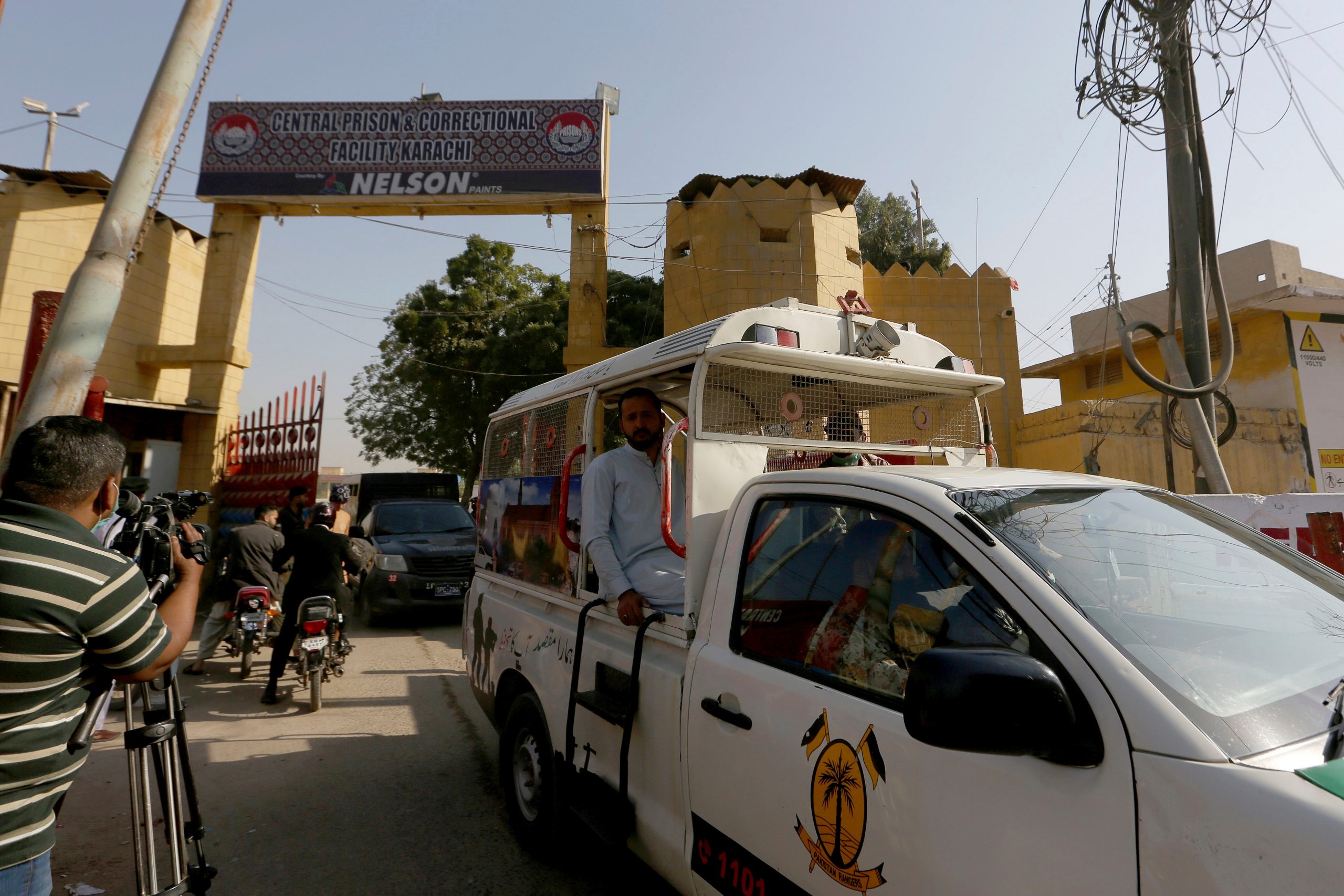EXPLAINER: Beyond acquittal of man accused in Pearl killing

Pakistan is scrambling to manage the fallout from a decision by the country’s Supreme Court to free the Pakistani-British man accused in the 2002 beheading of American journalist Daniel Pearl.
The Sindh provincial government on Friday filed a review petition, asking the same court to revisit its decision.
But even the lawyer for the Pearl family has said a review petition has a slim chance of succeeding because it is heard by the same judges who voted to free Ahmad Saeed Omar Sheikh. The case appears to have fallen apart because of the contradictory evidence produced during Sheikh’s original trial in 2002 and the decision by the prosecution at the time to try him and three other accused co-conspirators together. According to the Pearl family lawyer, Faisal Siddiqi, this means that doubt about the guilt of one translates into a doubt about all.
Washington has expressed outrage, promising to pursue extradition of Sheikh on two separate U.S. indictments against him. For its part, Pakistan’s government has thrown up every legal hurdle it could to keep Sheikh in jail following his acquittal last April by a lower court.
WHAT LEGAL OPTIONS REMAIN FOR PAKISTAN?
The provincial Sindh government has taken the last remaining legal step by filing a review petition Friday with the Supreme Court. It’s unlikely to change the outcome, but it could give the provincial government legal cover to keep Sheikh in jail in the port city of Karachi, the capital of the southern Sindh province.
Defying the Supreme Court order to free Sheikh could again leave the Sindh government facing contempt charges. It already defended itself against earlier charges of contempt for previously refusing to release him, ignoring an order from a lower court.
Please enter your email address Please enter a valid email address Please enter a valid email address SIGN UP Thanks for signing up to the News newsletter {{#verifyErrors}} {{message}} {{/verifyErrors}} {{^verifyErrors}} {{message}} {{/verifyErrors}} The Independent would like to keep you informed about offers, events and updates by email, please tick the box if you would like to be contacted
Read our full mailing list consent terms here Thanks for signing up to the News newsletter {{#verifyErrors}} {{message}} {{/verifyErrors}} {{^verifyErrors}} {{message}} {{/verifyErrors}} The Independent would like to keep you informed about offers, events and updates by email, please tick the box if you would like to be contacted
Read our full mailing list consent terms here
Pakistan also might consider charging him in connection with allegations that he possessed nine different SIM cards for phones he used to contact friends, including some in Britain, in 2009 while on death row. There have been suggestions in the local media in Pakistan that he used the SIM cards to call for assistance to break him out of the Hyderabad jail where he’d been on death row since his 2002 conviction. He was moved to a Karachi jail after his April acquittal.
WHAT OPTIONS ARE OPEN FOR THE U.S.?
U.S. Secretary of State Antony J. Blinken said Washington was ready to extradite Sheikh to answer two indictments against him in U.S. courts — one for his involvement in the beheading of Pearl and the other for his involvement in the kidnapping of an American in Indian-ruled Kashmir in 1994, alongside three British tourists. All four were eventually freed unhurt.
There are a couple of hurdles to extradition: Pakistan, like the United States, has a double jeopardy rule that prevents a person from being tried for the same offense twice. The U.S. also does not have an extradition treaty with Pakistan, although Islamabad has in the past bypassed legalities to send suspects to the U.S., including Khalid Sheikh Mohammad, the alleged mastermind of the 9/11 terrorist attacks. Mohammed has been in U.S. custody on Guantanamo Bay since his arrest in Pakistan in March 2003. He also confessed that he killed Pearl himself, but has not been charged in the Wall Street Journal reporter’s death. The most recent example of Pakistan allowing someone accused of a crime to leave for the U.S. was in 2011, when Raymond Davis, an American contractor at the U.S. Embassy, returned home after gunning down two people in the eastern city of Lahore. He said he opened fire because he felt threatened.
HOW MIGHT THIS CASE IMPACT U.S.-PAKISTAN RELATIONS?
The case could be one of the first major tests for President Joe Biden and U.S.-Pakistan relations have historically been tumultuous. Pakistan likely will play a crucial role in the Biden administration’s attempts to navigate the U.S. withdrawal from Afghanistan. Pakistan was seen as key to getting the Taliban into negotiations with the Kabul government, even if those talks have been excruciatingly slow and until now have garnered little success, even as violence has spiked.
Mohammad Amir Rana, executive director of the Pakistan Institute of Peace Studies, said Sheikh’s acquittal has created a conundrum for both countries. Until now, Pakistan has taken every legal step to keep Sheikh in jail but sending him to America could rile up opposition at home, Rana explained. For America, snubbing Pakistan just when the two have agreed on exchanging intelligence on terror financing and the road to a political settlement in Afghanistan is at a critical juncture, could result in setbacks on both fronts.
WHO IS AHM SAEED OMAR SHEIKH?
A British national of Pakistani heritage, Sheikh lived a relatively privileged life in Britain, where he attended the prestigious London School of Economics. It appears he was inspired to jihad by the conflict in the former Yugoslavia in the 1990s, relentless attacks on Muslims in Bosnia at the time, their treatment in Bosnian Serb camps and what Sheikh perceived as Western indifference to their plight.
He traveled to Bosnia and later joined Harakat-a-Ansar, a Pakistan-based militant group that was declared a terrorist group by the U.S. in 1997 and later became known as Harakat-ul-Mujahedeen. He also travelled to the Indian-ruled section of Kashmir to wage war against India in the Muslim-majority region. The disputed Himalayan region is split between India and Pakistan and claimed by both in its entirety.
Sheikh’s strength seemed to be his ability to use his British upbringing to entice foreigners to trust him. That ability led to the kidnapping of the American tourist in 1994, and according to some evidence, eased any concerns Pearl might have had as he sought to track militants in Pakistan.






